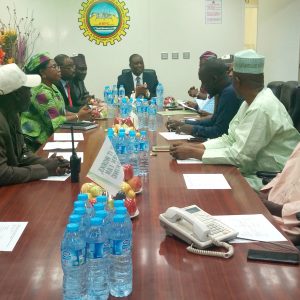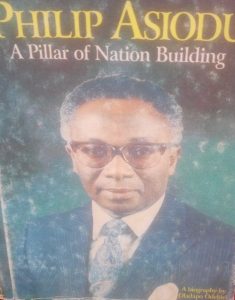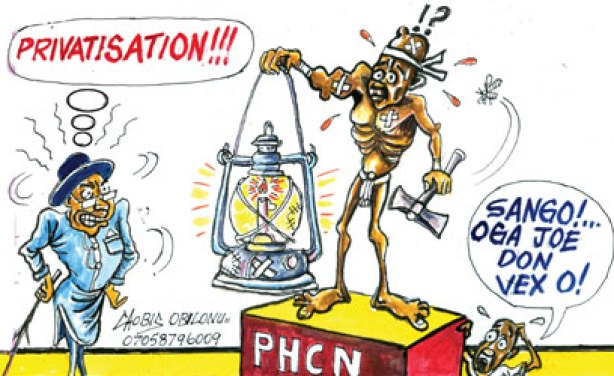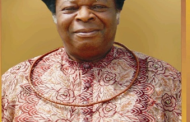Might Nigeria miraculously be returning to those glorious days from mid 1966 to late 1079 when knowledgeable, patriotic and confident technocrats took nationalist positions in shaping public policy under military rule? There is a hint of this direction in the opposition of Engineer Adewale Ladenegan, the Managing Director of the Kaduna Refining and Petrochemical Company (KRPC) who is saying a categorical No to privatisation of Nigerian refineries by the government.

At the table with the visiting legislators. Pix credit: Newsexpress online

The MD thinks Nigeria should look at the global energy dynamics or it would be the loser
Instead of privatization, he is recommending adequate funding of the refineries by the Nigerian State because, according to him, there has been nothing to show from the privatization of government companies carried out previously. That, he said, He said, is the only way the refineries can provide enough fuel to Nigerians.
The MD told members of the House of Representatives Committee on Petroleum during the Committee’s oversight visit to the refinery December 12th, 2018 that he is yet to see the dividend of the privatisation of such national giants as Nigeria Telecommunications Limited (NITEL) or the National Electric Power Authority, (NEPA). Instead, their privatization was a way of making Nigerians become poorer and jobless”.
Situating his argument in the wider global energy politics, Engineer Ladenegan pointed out how the United States of America, Nigeria’s erstwhile leading buyer no longer import crude oil from Nigeria and hence “the need to add value to our crude before we sell it”.
Speaking specifically on the Kaduna Refinery, the MD spoke to how obsolete several types of its equipment are now due mainly to failure to observe the Turn Around Maintenance (TAM) regime. According to him, some units have been down for 10 years, hence his argument for upgrading all the unit instrument, saying that such continuous improvement is the world best practice in the refinery business.
Defending the technical proficiency of his staff, the MD maintained that they fully engaged in maintenance and preservation operations, ruling out staff redundancy as a problem of the plant. He recalled how the junior staff were trained in Italy and worked in some refineries there before their return to Nigeria.

This biographical text tells part of the story of the nationalism behind the NNPC

Engineer Adewale Ladenegan taking over s MD of KRPC in August 2017
Hon Joseph Akinlaja, the Chairman of the committee has promised a major debate on the issue of privatisation of the refinery when tabled before the federal legislature. Speaking in nearly the same tone with the MD, Akinlaja drew attention to the paradox of Nigeria being a power in crude oil but a net importer of the product, thereby providing jobs for other people from other countries who are refining and selling the product to Nigeria. He is confident Nigeria can make her own refineries work and make the price of the petroleum products cheaper “because we will not need to freight crude overseas and freight the same product back”.
Atiku Abubakar, former Vice-President and presidential flag bearer of the People’s Democratic Party, (PDP) raised national temperature recently when he said he would sell the Nigerian National Petroleum Corporation, (NNPC) if he became the president in May 2019. The question was, sell to who? How many capitalists have enough financial muscle to buy NNPC without Nigeria being duped?
The view of the MD of Kaduna Refinery at this point might thus not be a lone one but that of the technocratic bourgeoisie whose pioneers, broadly known as the ‘Super Perm Secs’ in those days established the NNPC, set nationalist goals for it along its counterparts across the world. Today the NNPC may not exactly be a Lilliputian but Nigeria is certainly nowhere in comparison with some of those countries, be they in South East Asia, Latin America or in the Scandinavian countries.
It is not clear why Atiku Abubakar made that statement even in spite of the nationalist overflow in November 2016 at the Senate in particular when the issue of selling remaining State Owned Enterprises, (SOEs).

A scenario from a typical fuel scarcity in contemporary Nigeria
 Meanwhile, the (presidential) campaign itself continues to be more of bickering without the most substantive issues brought up. None of the parties is touching on the issue of how Nigeria might make the leap from primitivity to modernity through state led rapid agro-industrial transformation. That is the state as an engine of development. None of the two leading candidates are speaking to that issue in any serious, systematic manner. While the president is still hooked to his monologue on fighting corruption, Atiku Abubakar, his main challenger, is hooked on to heroic management capability. He obviously thinks that the models he has assembled are enough to take Nigeria out of its present dysfunctional existence. The smaller parties and their presidential candidates are not privileging this either.
Meanwhile, the (presidential) campaign itself continues to be more of bickering without the most substantive issues brought up. None of the parties is touching on the issue of how Nigeria might make the leap from primitivity to modernity through state led rapid agro-industrial transformation. That is the state as an engine of development. None of the two leading candidates are speaking to that issue in any serious, systematic manner. While the president is still hooked to his monologue on fighting corruption, Atiku Abubakar, his main challenger, is hooked on to heroic management capability. He obviously thinks that the models he has assembled are enough to take Nigeria out of its present dysfunctional existence. The smaller parties and their presidential candidates are not privileging this either.
It is to Nigeria’s diversity that a key voice is coming from the least expected quarters – a member of the technocratic arm of the Nigerian establishment whose training and deep understanding of the global energy space must have led him to a nationalist standpoint on managing the petroleum industry. It remains unclear whether this outspokenness is evidence that the technocratic bourgeoisie in Nigeria has finally overcome its shocker from the Murtala/Obasanjo regime or it is just a one night stand. In many countries, politicians and political leaders can promise to build bridges even where there are no rivers but it is the technocrats who actually run the nation. In Nigeria, such independent mindedness is suicidal. Certainly, not after the great purge of 1976. Today, mediocrity and sycophancy are the orders of the day.




























